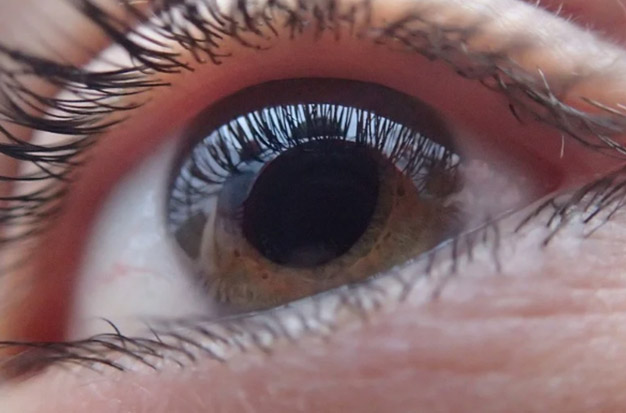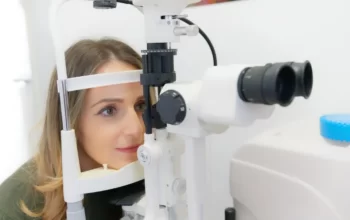
Glaucoma can affect anyone, but some people may be more vulnerable. Knowing your risk can help you decide whether you should visit an optometrist. High-risk individuals should have an eye exam to determine the health of their eyes.
Glaucoma: is it inherited? Learn more about this condition and what factors may make you more likely to develop glaucoma by reading on.
Is Glaucoma Inherited
Even though anyone can develop glaucoma, if it runs in your family you may be more likely to do so. Open-angle glaucoma, the most typical type, runs in families.
If someone in your immediate family has glaucoma, your risk of developing this condition is increased by 4 to 9 times. Although this condition is not a given, you should be aware of the increased risk. Your vision can be protected by frequent trips to the eye doctor.
In addition to family history, a number of other factors can make you more susceptible to glaucoma.
What Is Glaucoma?
A group of illnesses collectively referred to as glaucoma cause irreparable damage to the optic nerve and may result in blindness and vision loss. Glaucoma is a condition that is frequently associated with aging but can actually affect anyone at any time. Since genetic and hereditary factors are thought to play a significant role in all of the major forms of glaucoma, the disease can be inherited.
Despite the fact that everyone is at risk for glaucoma, those who have a family history of the condition are more likely to be affected. In actuality, those who have a family history of glaucoma are 4 to 9 times more likely to develop it. A genetic predisposition to developing glaucoma has also been linked to certain genetic mutations.
Primary Open-angle Glaucoma: It is most common to have primary open-angle glaucoma. This form of glaucoma is thought to be heritable despite the fact that the precise genes responsible for its development have not yet been discovered. Family history is one risk factor that is linked to other factors, such as environment and gene-gene interaction.
Early-onset Glaucoma: If glaucoma develops before the age of 40, the condition is referred to as early-onset glaucoma. Glaucoma is most frequently seen in older people because it can be caused by medical conditions like hypertension and family history. Families tend to have a history of it, especially when it affects young people.
Primary Congenital Glaucoma: When the condition manifests before the age of five, it is referred to as primary congenital glaucoma. In these situations, a child is typically born with structural eye abnormalities that prevent appropriate fluid drainage.
Until the very end stage when patients notice a problem with their peripheral (side) vision, glaucoma is completely asymptomatic in the majority of cases. Regular vision exams are essential to track the health of your eyes, especially if you have a family history of eye conditions.
Symptoms Of Glaucoma
The type of glaucoma you have and where it is in its progression will determine your symptoms. Glaucoma typically takes a long time to develop, so you might not experience any symptoms until your vision is compromised.
The sneak thief of sight, glaucoma, can go unnoticed for years if someone skips their yearly eye exams and has no outward symptoms.
As glaucoma progresses, you may notice:
- Blind spots in your peripheral or central vision
- Tunnel vision (in advanced stages)
Angle-closure glaucoma is one of the many types of glaucoma, and it has additional symptoms. This condition requires medical attention, so seek treatment if you experience any symptoms, including:
- Severe headache
- Eye pain
- Nausea & vomiting
- Blurred vision
- Halos around lights
- Eye redness
You might not even be aware that you have glaucoma until it is far along because of how slowly it usually progresses. It’s a common misconception that glaucoma patients will experience increased eye pressure or vision problems, but this isn’t the case. The best way to recognize signs of this disease is to schedule routine appointments with your optometrist.

What Causes Glaucoma?
Optic nerve damage is the primary cause of this condition. An increase in IOP, which impacts your optic nerve, is a feature of many forms of glaucoma but not all of them.
Because of the accumulation of fluid inside your eye, your eye pressure rises. Your iris and cornea meet at an angle where this fluid drains, but there may be problems with this drainage. It’s possible that you produce more fluid than usual or that problems with your drainage system arise.
Depending on the type of glaucoma you have, the reason for your optic nerve damage may vary.
Is Open-Angle Glaucoma Inherited?
Around 90% of cases of glaucoma are open-angle, which accounts for its prevalence. The risk of developing open-angle glaucoma is four to nine times higher in people with a family history of the disease. Inform your ophthalmologist right away if there is a family history of glaucoma in your family. Ophthalmologists can detect early glaucoma symptoms and take the necessary actions to treat and slow the disease by being aware of this information.
Do Some People Inherit Closed-angle Glaucoma?
Compared to open-angle glaucoma, closed-angle glaucoma is less frequent and usually develops very suddenly. Even though this form of glaucoma is less frequent, it is still inherited. It’s critical to understand what closed-angle glaucoma looks like and what to do if you experience symptoms because it typically develops suddenly and without warning. To prevent vision loss due to closed-angle glaucoma, action must typically be taken right away.
Your risk of developing closed-angle glaucoma significantly rises if you have a sibling or parent who has the disease. In case you are given a glaucoma diagnosis, inform your siblings and request that they do the same for you.
Given that glaucoma is hereditary, it’s important to be aware of your family’s medical history and to inform your ophthalmologist if the condition runs in your family. Call Broberg Eye Care to arrange an examination, go over any concerns you have, and go over any symptoms you are feeling.
Healthy Lifestyle And Exercise Can Reduce Glaucoma Risk
Even though glaucoma may be largely hereditary, most symptoms often do not manifest until much later in life. You should have an eye exam at least every two years, or whenever your optician suggests it, especially if you have a family history of glaucoma or are over 40. Additionally, a recent study6 has shown that regular exercise can help to reduce the risk of glaucoma by improving blood flow in the body and your eyes.
To keep yourself informed about the signs, how glaucoma is identified and diagnosed, and the available glaucoma treatments, you might also find it useful to look into more of the glaucoma content.
You can find related content in our glaucoma causes resource if you’re looking for more details on the risk factors and causes of glaucoma.



